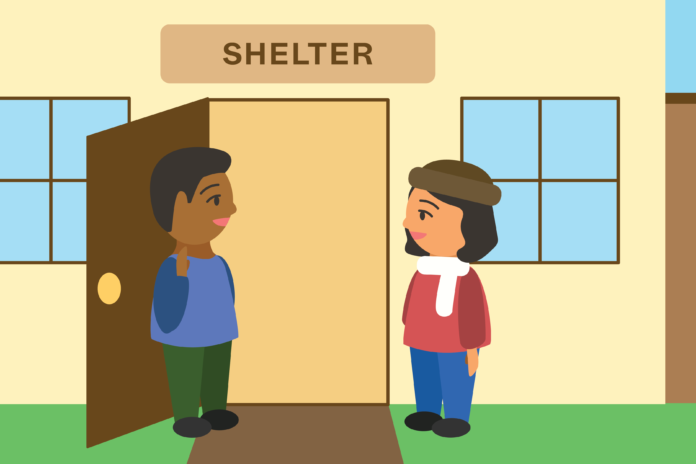Advocates for unhoused individuals claim Sacramento is failing to support its homeless population during the pandemic
On Dec. 15, Mayor Darrell Steinberg of Sacramento announced new criteria regarding public warming centers for the city’s homeless population this winter. Under the new plan, the city will open warming centers after the temperature reaches 33 degrees Fahrenheit or below for 24 hours. The previous Sacramento County and City threshold was 32 degrees Fahrenheit or below, maintained for three days.
“Every life matters,” Mayor Steinberg said in the press release. “We will do all we can even with all of the Covid restrictions to provide our homeless neighbors with a warm, safe place to come inside.”
The new policy follows the death of Greg Tarola, an individual who experienced homelessness, in Sacramento on Nov. 20. Sacramento Regional Coalition to End Homelessness Executive Director Bob Erlenbusch described that it was 37 degrees Fahrenheit and raining when Tarola was found.
“Greg Tarola froze to death about two weeks ago,” Erlenbusch said. “[A] 63-year-old gentleman, and his sleeping bag and clothes were drenched—it had rained during the night. It’s pretty obvious that he froze to death—he was drenched, he was soaked to the bone.”
The Sacramento County Coroner’s Office has Tarola’s cause of death listed as “undetermined.”
Although acknowledging that the new plan for warming shelters is an improvement, Erlenbusch called the move disappointing. He explained that temperatures over 33 degrees Fahrenheit can still be dangerous depending on a variety of circumstances.
“If I stepped outside and it was 35 degrees Fahrenheit, it would be cold—especially if it’s raining or if there’s any kind of wind,” Erlenbusch said. “We’re going to continue to push the city and the county to open up warming centers from Dec. 1 to March 31, regardless of the temperature.”
Faye Wilson Kennedy, the Sacramento Poor People’s campaign lead organizer and the Sacramento Black Caucus immediate past chair, described how unhoused individuals are trying to protect themselves from the rain when resources like warming centers and shelters aren’t available.
“The folks who are unhoused are in the rain under tarps, under plastic bags, under your car, trying to stay dry from the rain,” Wilson Kennedy said.
Sacramento Loaves & Fishes Advocacy Director Joseph Smith described that both public and faith-based homeless shelters are taking in less individuals because of the pandemic.
“The city’s stock of shelters is really low,” Smith said. “It was low before COVID-19, and then COVID-19 restrictions went into place, and most of those public-run shelters cut their population back to 50%. The faith-based shelters closed altogether.”
Wilson Kennedy echoed a similar sentiment, describing that the high contagiousness of the coronavirus discourages shelters from operating at their normal capacity.
“Before COVID-19, you would have churches opening their doors, you would have community centers,” Wilson Kennedy said. “But because of the virus, lots of places are very reluctant to open their doors. The pandemic has really thrown a wrench in how we engage with those who are unhoused.”
Erlenbusch explained that alongside its new criteria for warming centers, Sacramento also plans to shelter homeless individuals in motels this winter.
“The positive side is that the city announced that they had about $35,000 to purchase motel vouchers, so people could come in out of the cold and stay in a motel,” Erlenbusch said. “That [program] is not temperature-driven.”
Although organizations and governments can support individuals experiencing homelessness, Smith explained that he doesn’t think change is possible until people challenge their perception of unhoused individuals.
“The ‘Not in my backyard’ folks want to see people get help, but they just don’t want it to be in their neighborhood,” Smith said. “Until we change the conversation and make it more human and welcoming, it’s never going to get any better.”
Written by: Eden Winniford — city@theaggie.org





